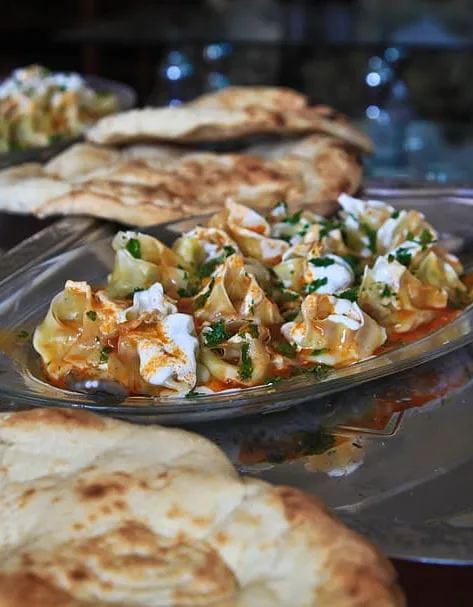Lebanese cuisine is a vibrant tapestry of flavors, with a rich history deeply rooted in tradition. As food enthusiasts seek both culinary delight and sustainability in their dining choices, Lebanese cuisine emerges as a perfect blend of authenticity and environmental consciousness. In this article, we explore the allure of the Best Lebanese Food, delve into the realm of Traditional Middle Eastern Desserts, and indulge our taste buds with the exquisite Mahalabia – a Rose Water Milk Pudding that captures the essence of Lebanese sweet indulgence.
The Best Lebanese Food and Sustainability: The best Lebanese food and sustainability cuisine is renowned for its use of fresh and locally sourced ingredients, reflecting a commitment to sustainability. From the iconic tabbouleh, bursting with the flavors of parsley, mint, and tomatoes, to the heartwarming mezze platters that showcase an array of vegetable-based dishes, Lebanese food embodies a mindful approach to nature.
One standout example is the Lebanese staple, falafel. Made from ground chickpeas or fava beans, falafel not only boasts a deliciously crunchy exterior and a tender interior but also aligns with sustainable practices by utilizing plant-based protein. This not only caters to the growing demand for vegetarian options but also contributes to a reduced environmental footprint.
Traditional Middle Eastern Desserts: Lebanese desserts are a celebration of sweetness, often featuring the delicate balance of floral and nutty notes. Among the treasures of traditional Middle Eastern desserts, Baklava takes center stage with its layers of phyllo dough, chopped nuts, and honey or syrup. This timeless treat exemplifies the fusion of flavors and textures that characterize Lebanese desserts.
Enter Mahalabia – a dessert that captures the essence of Lebanese gastronomy. This Rose Water Milk Pudding is a culinary masterpiece, combining the creaminess of milk with the subtle fragrance of rose water. As a dessert deeply embedded in tradition, Mahalabia pays homage to the culinary heritage of the Middle East while offering a delightful ending to any meal.
Exploring Mahalabia – Rose Water Milk Pudding: Mahalabia (Rose Water Milk Pudding), with its silky texture and delicate flavor profile, is a testament to the artistry of Lebanese dessert-making. This delectable pudding is often adorned with a sprinkle of ground pistachios or a drizzle of rose water syrup, elevating its presentation and taste.
The key to Mahalabia’s allure lies in its simplicity. Milk, sugar, and rice flour are combined and slowly cooked until the mixture thickens, creating a velvety base. The addition of rose water introduces a fragrant nuance that elevates Mahalabia to a level of sophistication rarely seen in desserts.
FAQs:
Q1: Is Mahalabia a difficult dessert to make at home?
A1: Not at all! Mahalabia’s simplicity makes it an excellent choice for home cooks. With just a few basic ingredients and a bit of patience, you can recreate this Lebanese delight in your kitchen.
Q2: Can Mahalabia be made without rose water?
A2: While rose water is a traditional component of Mahalabia, you can certainly customize the recipe to suit your preferences. Consider substituting it with orange blossom water or vanilla extract for a unique twist.
Q3: How can I make Lebanese meals more sustainable?
A3: Embrace the use of locally sourced, seasonal produce in your Lebanese recipes. Opt for plant-based protein alternatives like falafel, and reduce food waste by repurposing leftovers into creative dishes.
Conclusion: Lebanese cuisine, with its emphasis on fresh, locally sourced ingredients, not only tantalizes the taste buds but also aligns with the principles of sustainability. From the savory delights of falafel to the sweet enchantment of Mahalabia, Lebanese food captures the essence of a culinary journey that transcends time and borders. As we savor the tradition and sustainability embedded in each bite, we find ourselves immersed in the rich tapestry of Lebanese gastronomy, where the past and the present coalesce in a harmonious celebration of flavor.
